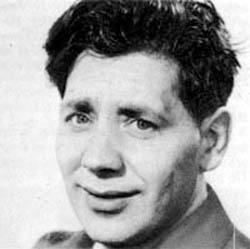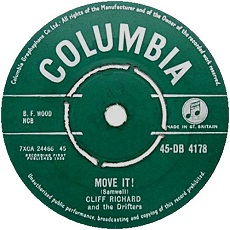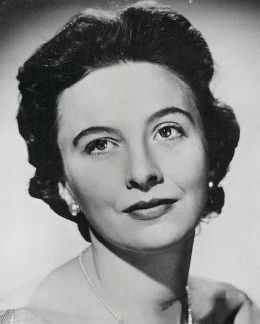Related Research Articles

"Crazy Little Thing Called Love" is a song by the British rock band Queen. Written by Freddie Mercury in 1979, the track is included on their 1980 album The Game, and also appears on the band's compilation album Greatest Hits in 1981. The song peaked at number two in the UK Singles Chart in 1979 and became the group's first number-one single on the Billboard Hot 100 in the US in 1980, remaining there for four consecutive weeks. It topped the Australian ARIA Charts for seven weeks. It was the band's final single release of the 1970s.
Dame Felicity Ann Emwhyla Lott, is an English soprano.

Alfie Bass was an English actor. He was born in Bethnal Green, London, the youngest in a Jewish family with ten children; his parents had left Russia many years before he was born. He appeared in a variety of stage, film, television and radio productions throughout his career.

The Foundations were a British soul band who were primarily active between 1967 and 1970. The group's background was: West Indian, White British and Sri Lankan. Their 1967 debut single "Baby Now That I've Found You" reached number one in the UK and Canada, and number eleven in the US. Their 1968 single "Build Me Up Buttercup" reached number two in the UK and number three on the US Billboard Hot 100. The group was the first multi-racial group to have a number one hit in the UK in the 1960s.
"Blue Moon" is a popular song written by Richard Rodgers and Lorenz Hart in 1934 that has become a standard ballad. Early recordings included those by Connee Boswell and by Al Bowlly in 1935. The song was a hit twice in 1949, with successful recordings in the U.S. by Billy Eckstine and Mel Tormé.

"Betcha by Golly, Wow" is a song written by Thom Bell and Linda Creed, originally titled "Keep Growing Strong" and recorded by American actress and singer Connie Stevens under the Bell label in 1970. Stevens' recording runs two minutes and thirty seconds. The composition later became a hit when it was released by the Philadelphia soul group the Stylistics in 1972 under its better known title, "Betcha by Golly, Wow".

"The Holy River" is a song by American musician Prince, released in January 1997 by NPG/EMI as the second single from his nineteenth album, Emancipation (1996). The pop/rock-based song tells the story of spiritual enlightenment and of Prince's decision to marry Mayte Garcia. A music video was also produced to promote the single.

Owen Brannigan OBE was an English bass, known in opera for buffo roles and in concert for a wide range of solo parts in music ranging from Henry Purcell to Michael Tippett. He is best remembered for his roles in Mozart and Britten operas and for his recordings of roles in Britten, Offenbach and Gilbert and Sullivan operas, as well as recordings of English folk songs.

Ian Bryce Wallace OBE was an English bass-baritone opera and concert singer, actor and broadcaster of Scottish extraction.

"Baby, Now That I've Found You" is a song written by Tony Macaulay and John Macleod, and performed by the Foundations. Part of the song was written in the same bar of a Soho tavern where Karl Marx is supposed to have written Das Kapital. The lyrics are a plea that an unnamed subject not break up with the singer.

"Killer" is a song by British DJ and record producer Adamski. It was written by Adamski and British singer-songwriter Seal, who also provided vocals. It was released in March 1990 by MCA Records as the first single from Adamski's second album, Doctor Adamski's Musical Pharmacy (1990), and reached number one on the UK Singles Chart. The single spent four weeks at the top in May and June 1990 and sold over 400,000 copies in the UK, earning it gold certification. It also reached number one in Belgium and Zimbabwe and number two in the Netherlands and West Germany.

"Move It" is a song written by Ian Samwell and recorded by Cliff Richard and the Drifters. Originally intended as the B-side to "Schoolboy Crush", it was released as Richard's debut single on 29 August 1958 and became his first hit record, reaching number 2 on the UK Singles Chart. It is often described as Britain's first authentic rock and roll song. It is credited with being one of the first authentic rock and roll songs produced outside the United States. "Schoolboy Crush", written by Aaron Schroeder and Sharon Gilbert, had already been recorded in the US by Bobby Helms. Cliff Richard and the Drifters recorded their own version, which was intended to be the A-side of their debut single. However, when producer Jack Good heard "Move It", he insisted that Richard would have to sing that if he was to appear on Good's TV show Oh Boy! On the planned single, "Move It" was flipped to be the A-side and it went to number 2 in the charts, starting Cliff Richard on a career which included British hits through six decades.

Eric Allandale was a trombonist, songwriter, and bandleader. During the 1960s, he was in number of bands in various genres which included jazz pop and soul.

"Give Me a Little More Time" is a song by English singer and songwriter Gabrielle, recorded for her second studio album, Gabrielle (1996). Written by Gabrielle and Ben Barson with the Boilerhouse Boys, Ben Wolff, and Andrew Dean, it served as the album's lead single, released on 12 February 1996 by Go! Beat. "Give Me a Little More Time" returned Gabrielle to the top 10 of the UK Singles Chart, peaking at number five and spending 10 weeks inside the top 20. The song also peaked at number nine on the Irish Singles Chart and reached the top 40 in Iceland, the Netherlands, New Zealand, and Sweden. It was accompanied by a black-and-white music video. Melody Maker ranked "Give Me a Little More Time" number 18 in their list of the best singles of 1996.

"Don't Marry Her" is a song by English pop rock group the Beautiful South and the opening track on their fifth studio album, Blue Is the Colour (1996). It was written by Paul Heaton and Dave Rotheray, and produced by Jon Kelly. Vocalist Jacqui Abbott begs a man to run away with her from the woman he is going to marry and attempts to sway him by describing what she thinks married life with the other woman will be like, painting an uninviting picture. Released on 2 December 1996 by Go! Discs, the single peaked at number eight on the UK Singles Chart and was certified platinum by the British Phonographic Industry.

Ivor Bolton is an English conductor and harpsichordist.

April Rosemary Cantelo was an English soprano. She created roles in operas by major composers, including the title role of Semele by John Eccles, Helena in Britten's A Midsummer Night's Dream, and in several works by Malcolm Williamson such as English Eccentrics.

"Out of the Sinking" is a song by British singer-songwriter Paul Weller, released in 1994 by Go! Discs as the first single from his third solo album, Stanley Road (1995). Weller wrote the song and produced it with Brendan Lynch. The B-side to the single is a cover of the Beatles' "Sexy Sadie".
Jimmy Parkinson was an Australian singer and presenter, active in the 1950s, who had a top ten single in the UK singles charts in 1956.
References
- ↑ Register of Soldiers. Surrey: Queen's Royal Regiment. 1942. p. 77.
- ↑ World War II Royal Artillery Tracer Cards, 1939-1948. London: Royal Artillery. 1 July 1943.
- ↑ "Leslie Fyson". Operabase. Retrieved 11 April 2024.
- ↑ "Leslie Fyson". The Stage: 32. 14 November 1996.
- ↑ "Pick of the radio week". Cambridge Daily News: 65. 20 October 1989.
- ↑ Lee, Benny (31 May 1958). "There's lolly in laughter". Aberdeen Evening Express: 9.
- ↑ "Top Twenty". Disc: 3. 28 June 1958.
- ↑ "Melody Maker UK Chart Hits" (PDF). Pop Music History. Retrieved 11 April 2024.
- ↑ "The signature tune of The Army Game". Official Charts Company. Retrieved 11 April 2024.
- ↑ Jasper, Tony (1975). 20 Years of British Record Charts. London: Queen Anne Press. p. 36.
- ↑ Credits on the album sleeve insert.
- ↑ Marriages registered in October, November and December 1949. HMSO. 1949. p. 376.
- ↑ "Leslie Fyson". The Stage: 32. 14 November 1996.